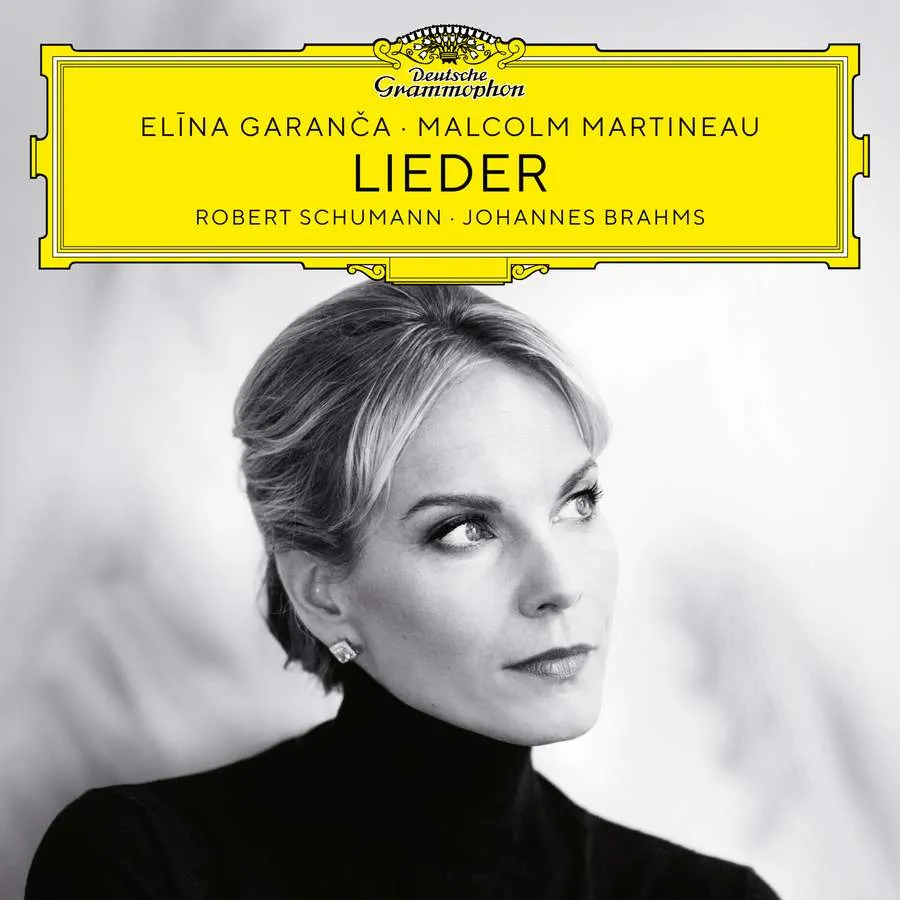
Brahms • R Schumann R Schumann: Frauenliebe und -Leben, Op. 42; Brahms: Liebestreu, Op. 3 No. 1; Geheimnism, Op. 71 No. 3; Heimweh II, Op. 63 No. 8; Von ewiger Liebe, Op. 43 No. 1 Elīna Garanča (mezzo-soprano); Malcolm Martineau (piano) DG 483 9210 53:39 mins
The liner notes of this recital offer both a defence for the repertoire choice and a review of the performance. Of the former, Elīna Garanča defends the plot of Schumann’s cycle (summary: woman falls in love, gets married, has a baby, is widowed and then turns to mourning); regarding the latter, we’re told that her singing of German ‘does not weaken the intimacy of her text interpretation’.
If we’re allowed to decide for ourselves, then Frauenliebe does work quite well, thanks to Garanča’s expressive sincerity. Her rich, strong voice brings welcome maturity to Chamisso’s silly, love-struck protagonist in the opening song, but sounds matron-like in ‘Er, der Herrlichste von allen’ and others. So, if you can imagine the heroine as a besotted woman in her mid-40s – and why not? – then you will enjoy this performance. The transition into the Brahms is nicely handled, staying in the same key. Brahms suits Garanča – he loved low female voices. Here, her sound remains beautiful, but quite uniform; she could differentiate more between the daughter and mother in ‘Liebestreu’, achieve more transparency in ‘Sapphische Ode’, more playfulness in ‘O liebliche Wangen’ and tenderer intimacy in ‘Wir wandelten’. Malcolm Martineau, a pianist of great sensitivity and imagination, often sounds subdued, perhaps due to the recording balance.
Read more reviews of the latest R Schumann recordings here
Read more reviews of the latest Brahms recordings here
Natasha Loges